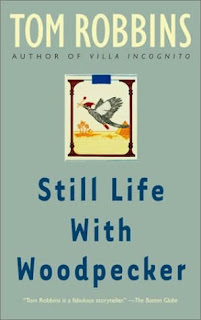
1995 (Swedish) & 1999 (English); 421 pages. Laurels : 1995 Swedish Crime Writers Academy (Best Crime Novel); 2001 Crime Writers Association (Best Crime Novel). New Author? : No. Genre : Crime Fiction (Police Procedural). Overall Rating : 8*/10.
.
It's been a tough two days for Detective Kurt Wallander. Yesterday he watched helplessly as a girl poured a gallon of gasoline over her head and lit a match. Today he's investigating why someone axed a retired Swedish statesman to death and then scalped him. He had hoped to go on vacation in a couple weeks, but that seems unlikely now.
.
What's To Like...
This is a police procedural, not a whodunit. Mankell tells the story from both Wallander's and the killer's perspective, so you learn pretty quickly the identity of the latter. Then it's a matter of watching how Wallander works to catch the crafty killer.
.
The pacing of the book is good, and there's enough action (mostly killings) throughout to avoid any dull stretches. The story is set in the Swedish summertime, which is a pleasant break from Mankell's earlier drab, wintry novels. There's a helpful map included, although some of the small towns mentioned are omitted. The translator did a good job, other than misspelling "dialled" and hyphenating "no-one".
.
The ending is a bit weak, although you could instead call it realistic. The only minus is the killer-goes-after-the-protagonist cliché; but eventually he changes his plan, so I guess that's okay too.
.
Kewl New Words...
Only one. Bollard : a thick post on a wharf used for attaching mooring lines.
.
Excerpts...
Wallander squatted by the low telephone stand. Next to the phone was the remote control for the TV. Wetterstedt could talk on the phone and watch TV at the same time, he thought. Just like me. We live in a world where people can't bear not to change channel and talk on the phone at the same time. (pg. 67)
.
"I wonder what kind of summer it'll be this year," he said.
"My grandmother in Almhult predicts the weather," said Hoglund. "She says it's going to be long, hot and dry."
"Is she usually right?"
"Almost always."
"I think it'll be the opposite. Rainy and cold and crappy."
"Can you predict the weather too?"
"No." (pg. 219)
.
"He might have another gun," Svedberg said. "He might try to take you hostage. I don't like this. (...) What does he want?"
"Maybe he's stupid enough to try and make a deal with us. People think Sweden is just like the United States." (pg. 411)
.
It's best to be hunting insane killers in the autumn. In the summer give me a good old-fashioned bomber. (pg. 367)
Sidetracked is another solid effort by Henning Mankell. Wallander is still messed up - he gets the hots for a female vicar (it was the outfit), yet has trouble speaking on the phone to his current GF. At least he's no longer burnt out with the job.
.
The killer has an amazing set of skills which strains the limits of believability. But it's not impossible, and his rationale for axing/scalping is interesting and plausible. Everything ties together nicely at the end, and once again Mankell adds some social commentary about life in Sweden. All in all, a good police procedural, worthy of the awards it garnered. 8 Stars.






